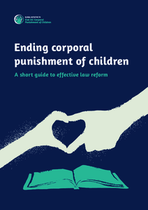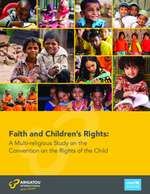Ending corporal punishment of children: A short guide to effective law reform
With this guide, the Global Initiative to End All Corporal Punishment of Children aims to support governments and civil society working to end violence against children through effective prohibition of corporal punishment.



